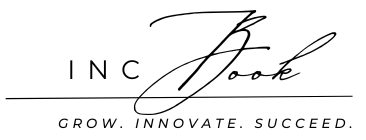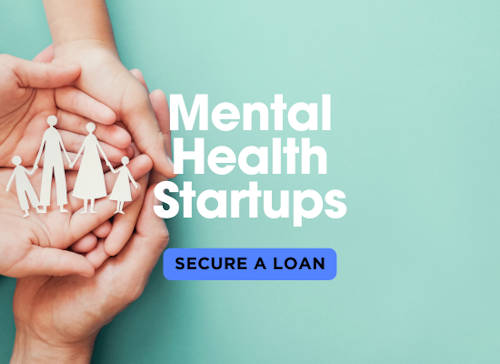Starting a mental health startup is both challenging and rewarding. One of the biggest hurdles you’ll face is securing the right financing to get your business off the ground and keep it running smoothly. Fortunately, there are a variety of loan options tailored to different needs, whether you’re just getting started or looking to scale. Let’s break down some of the best types of loans available for mental health startups and what you need to know about each one.
** Insider Tips below.
| IncBook: Financing Options for Mental Health Startups | ||||
|---|---|---|---|---|
| Loan Type | Interest Rate | Loan Amount | Pros | Cons |
| SBA 7(a) Loans | 6% – 13% | Up to $5 million | – Government-backed – Long repayment terms – Lower down payment |
– Lengthy approval process – Requires good credit |
| Business Line of Credit | 8% – 25% | $10,000 – $500,000 | – Flexibility to draw funds as needed – Only pay interest on what you use |
– Higher interest rates – Can be difficult to qualify for large amounts |
| Term Loans | 6% – 20% | $25,000 – $500,000 | – Predictable payments – Great for larger, planned expenses |
– Requires a strong financial history – Fixed monthly payments |
| Equipment Financing | 4% – 15% | Up to 100% of equipment value | – Equipment serves as collateral – Easier approval process |
– Restricted to equipment purchases – Can be expensive if equipment becomes obsolete |
| Microloans | 7% – 18% | Up to $50,000 | – Easier to qualify for – Ideal for startups with limited credit history |
– Limited loan amounts – Higher interest rates than traditional loans |
| Invoice Financing | 1% – 3% per month | Depends on invoice value | – Improves cash flow – Easy approval process |
– Can be costly over time – Fees add up if invoices remain unpaid |
| Crowdfunding | None | Varies based on platform | – No interest payments – Can build a loyal customer base |
– Time-consuming to run campaigns – May not raise enough capital |
Insider Tips
Leverage Your Social Mission for Crowdfunding
Mental health startups often have a strong community or societal impact. Use this to your advantage when crowdfunding—emphasize how your service can improve lives, and consider partnering with mental health influencers or advocates to boost your campaign’s visibility.
Take Advantage of Non-Profit Status
If your mental health startup is structured as a non-profit, you can access specialized loans and grants. Many foundations and government programs fund mental health initiatives, especially those focusing on underserved communities. Be prepared to demonstrate the social impact your startup is making.
Partner with Therapists for Equipment Financing
Many therapists in private practice are looking to expand or offer new services. You can create a partnership where they invest in your startup and, in return, share usage of any advanced equipment you purchase. This reduces your financing burden and helps build a collaborative network.
Negotiate with Lenders Based on Reimbursement Cycles
Mental health startups often face delayed payments from insurance companies. Use this fact to negotiate terms with lenders, emphasizing the reliability of future revenue even if it’s delayed. Some lenders will structure payments based on your cash flow cycles, particularly those familiar with healthcare.
Secure a Business Line of Credit to Manage Client Payment Gaps
In mental health, clients may face financial difficulties, leading to irregular payments. A business line of credit helps bridge these gaps. Many startups overlook this, but it can be a lifesaver for covering operational costs when client payments slow down.
Tap into Employee Assistance Program (EAP) Partnerships
Employee Assistance Programs (EAPs) often need reliable mental health service providers. If you can partner with EAPs early, this can secure a steady client base and consistent cash flow. Mentioning these partnerships in loan applications can show future revenue projections more confidently.
Consider Certification as a Community Health Provider
Many states and local governments offer certification for community health providers, which can make you eligible for low-interest loans and grants aimed at increasing mental health access. This certification not only boosts your credibility but also opens doors to funding that traditional businesses can’t access.
Showcase Your Technology Use for Better Terms
Lenders love innovation. If you’re incorporating technology like teletherapy platforms, data-driven mental health assessments, or AI-based mental health tools, highlight this to lenders. Tech-enabled startups are often seen as lower risk because they can scale faster and serve more clients, which may help you negotiate better loan terms.
Use Insurance Contracts as Collateral
If your mental health startup has contracts with insurance companies or large healthcare providers, you can use these as collateral for financing. Some lenders will view guaranteed future payments as a low-risk factor and provide more favorable terms.



